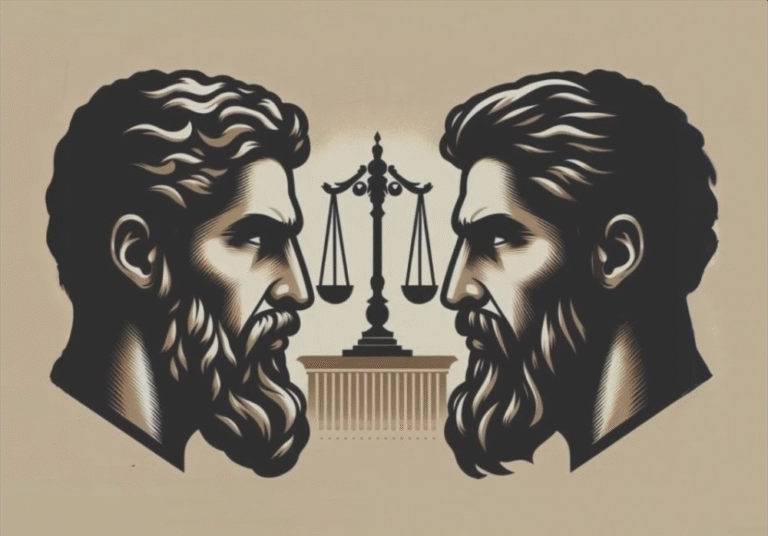“Slaves, Obey Your Masters”: The Shocking Context of Ephesians 6:5
The Verse That Causes a Crisis of Conscience
For the modern reader, few passages in the New Testament are more jarring and morally difficult than Ephesians 6:5-8: “Slaves, obey your earthly masters with respect and fear, and with sincerity of heart, just as you would obey Christ.” In a world that has witnessed the horrors of the Transatlantic slave trade and rightly recognizes slavery as one of humanity’s greatest evils, these words can feel like a divine endorsement of oppression. They seem to stand in stark contrast to the Bible’s overarching themes of liberation, justice, and the inherent value of every human being. For many, this is the verse that makes them question the entire moral authority of the Christian scripture.
To dismiss this passage as simply “a product of its time” is intellectually shallow and theologically unsatisfying. To use it to justify any form of oppression is a profound and dangerous perversion of its meaning. The only faithful path is to undertake the difficult work of understanding: What was the Apostle Paul really doing when he wrote these words? Was he a social conservative propping up a broken system, or was he a radical strategist, planting a theological bomb that would ultimately destroy the foundations of human oppression from within? This post will argue for the latter, contending that a deep dive into the historical context, the surrounding text, and the subtle language Paul employs reveals a subversive mission to transform the master-slave relationship and, in doing so, to fundamentally undermine the institution itself.
The Unavoidable Reality: What Was First-Century Roman Slavery?
Before we can understand Paul’s instructions, we must first banish our modern image of slavery, which is overwhelmingly shaped by the race-based chattel slavery of the American South. The slavery of the Roman Empire in the first century was a different, though still brutal, institution.
-
Not Race-Based: Slaves were not enslaved because of their skin color but primarily through military conquest, piracy, birth into slavery, or selling oneself (or one’s children) to pay off debt.
-
A Spectrum of Status: While field laborers and miners lived short, brutal lives, many slaves held positions of significant responsibility and could acquire wealth. They could be doctors, teachers, accountants, estate managers, and artisans. Their treatment varied wildly from benevolent to viciously cruel.
-
Pervasive and Entrenched: Slaves made up an estimated 30-40% of the Italian peninsula’s population and were the engine of the Roman economy. The entire social and economic order was built upon it. A direct call for violent slave revolt would have been instantly crushed with unimaginable brutality, resulting in the annihilation of the tiny, vulnerable Christian communities.
This context is crucial. Paul was not writing to a powerful majority that could effect political change. He was writing to a small, persecuted minority living within a totalitarian system. His task was not to draft a political manifesto for abolition—a concept that would have been virtually incomprehensible at the time—but to provide a pastoral strategy for how to live as a Christian within an evil structure without affirming that structure’s values.
The Subversive Strategy: How Paul Undermines the Master-Slave Dynamic
Paul’s instructions are not a standalone command. They are part of a larger section known as the Haustafel or “Household Code” (Ephesians 5:22-6:9), a common feature in Greek philosophical writings that outlined duties within a household. Paul, however, radically subverts this format in three crucial ways:
-
He Addresses the Slaves First: In the typical Greco-Roman household code, the paterfamilias (the male head) was addressed, and his rule was absolute. Everyone else—wives, children, slaves—were discussed as his property and their duty to obey him. By addressing slaves directly, Paul does something revolutionary. He acknowledges their moral agency and personhood. In a culture that viewed slaves as living tools (instrumentum vocale), Paul treats them as moral individuals capable of making conscious, spiritual choices. This alone was a radical affirmation of their humanity.
-
He Redefines the Motivation for Obedience: This is the heart of Paul’s subversion. He does not tell slaves to obey because their masters are inherently superior, because the system is just, or out of fear of the whip. He gives four entirely new, Christ-centered motivations:
-
“As you would obey Christ”: Their ultimate allegiance is transferred from their human master to a divine Master. This creates a higher loyalty that relativizes the master’s authority.
-
“With sincerity of heart”: Their work is not to be mere external compliance, but an internal commitment to integrity, done for its own sake.
-
“Just as you would do for the Lord”: This is perhaps the most transformative statement. Paul takes the most mundane, degrading act of servitude and infuses it with eternal, spiritual significance. Washing a floor, if done “as for the Lord,” becomes an act of worship.
-
“Knowing that the Lord will reward each one”: The slave’s true paycheck does not come from the master; it comes from God. This severs the master’s ultimate power to define the slave’s worth.
-
-
He Issues a Stunning Command to Masters: The real bombshell of the passage comes next. For the first time in any known household code, the master’s duty is outlined. And it is breathtaking: “And masters, treat your slaves in the same way. Do not threaten them, since you know that he who is both their Master and yours is in heaven, and there is no favoritism with him” (Ephesians 6:9).
With this final phrase, Paul dynamites the entire foundation of slavery. In the eyes of God, the ultimate Master, the earthly distinction between slave and master is meaningless. They are equals at the foot of the cross. The master is commanded to treat the slave with the same “sincerity of heart” and respect that the slave is to show him, because they both ultimately report to the same Boss. The command to “not threaten them” directly forbids the primary tool of control in the slave system.
The Theological Bomb: “There is no favoritism with him”
This statement, “there is no favoritism with him” (or “God shows no partiality”), is a recurring theme in the New Testament (Acts 10:34, Romans 2:11, Colossians 3:25). In this context, it is a theological declaration of war on the institution of slavery. If God does not recognize the distinction between slave and master, then the human institution is a fiction, a temporary and ultimately empty social construct. Paul does not advocate for a violent overthrow of the system; he instead plants an idea within the Christian community that is infinitely more powerful: the idea that the system is unreal in the ultimate, spiritual sense. By creating a community where master and slave worshipped side-by-side as brothers and sisters (as Paul refers to Onesimus in Philemon 1:16), the early church was living out a new reality that made the old categories obsolete.
From Ancient Slavery to Modern Work: Transforming Our Understanding of Vocation
While the application to literal slavery is thankfully historical for most readers, the theological principles Paul establishes are profoundly relevant to our modern relationship with work.
Paul’s instructions to slaves form the foundation of the Christian doctrine of vocation. He severs the link between the dignity of work and the status of the job. Whether you are a CEO or a janitor, your work has intrinsic value as an act of service to Christ. Your ultimate worth is not determined by your title, your salary, or your boss’s opinion, but by your identity as a redeemed child of God. This:
-
Dignifies All Work: No honest work is meaningless if done for the Lord.
-
Redeems Grudging Labor: It transforms a bad job with a difficult boss from a curse into a spiritual discipline, an opportunity to serve Christ in a challenging environment.
-
Challenges Those in Authority: The word to masters applies directly to modern employers, managers, and leaders. They are to lead with the awareness that they too have a Master in heaven, that they must “not threaten” but lead with fairness and respect, and that they will be held to account for how they treat those under their authority.
Conclusion: A Strategy of Subversion, Not Endorsement
Reading Ephesians 6:5 as an endorsement of slavery is a catastrophic misreading. It requires ignoring the historical context, the structure of the passage, the radical redefinition of obedience, and the earth-shattering command to masters. Paul was not a social conservative urging slaves to accept their lot. He was a pastoral theologian, providing a survival guide for those trapped in an evil system while simultaneously injecting that system with a poison—the poison of radical equality, ultimate loyalty to God, and the inherent dignity of every person—that would, over centuries, prove fatal to the institution itself.
He did not start a revolt that would have been crushed in bloodshed. He started a revolution of the heart and mind that ultimately changed the world. The message of Ephesians 6:5 is not “know your place.” It is “remember your true Master, and in doing so, discover a freedom and dignity that no earthly system can ever take away.”







